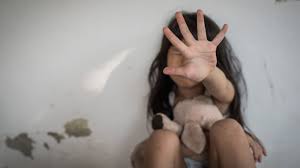S&P Global has indeed trained over 15,400 women in various STEM-related skills through the Million Women Mentorship (MWM) program, in collaboration with the U.S.-Pakistan Women’s Council, S& P Global Managing Director, Mujeeb Zahur said on Friday. Speaking at a webinar on ‘Career Development: Creating a Path for Employee Growth and Retention,’ held in collaboration with Nutshell Group, Zahur mentioned that their target is to train 20,000 women, which they hope to achieve soon. Mujeeb mentioned S&P Global’s platform ‘Edge’ as a new venue for our team members.
Mujeeb added; “S&P Global is also taking part in Corporate Responsibility, and Diversity, Equity, and Inclusion (DEI) Initiatives, that include training of the female workforce. Mujeeb Zahur, “We at S&P Global spend our energies on developing clear goals, embracing continuous learning, networking strategically, seeking feedback, and proactively developing leadership skills across the team.” Saquib Ahmad, Managing Director Pakistan, Iraq, and Afghanistan, SAP, emphasized the role of leadership, insisted on a conducive ecosystem to retain talent and reduce the brain drain in Pakistan.
A dialogue on the theme of the webinar followed, moderated by Al-Karim Hassan, Chief Strategy Officer, MAK Technology, UAE. Esteemed panelists included Wasif Rizvi, President, Habib University; Fatima Asad-Said, Chief Executive Officer, Abacus Consulting Technology Limited; Tanzeela Hussain, Global HR Business Partner, British Council; Muhammad Rizwan Dalia, Chief People Officer, K-Electric; and Shahrukh Masood, Group Director Human Resources & Corporate Communication, Martin Dow Group. Al-Karim initiated the dialogue with a profound statement on the new working modalities; “Not everyone can get promoted, but everyone can grow.” He mentioned how longevity at one organization was considered an important hallmark of a successful career, but now organizations are pushing their employees to gain experience from more than one employer, as they believe in upskilling and reskilling talent to fuel growth in the future.
Talking about employee retention practices, Wasif commented; “Apart from work-life balance, growth, encouragement, and good communication, the fundamental differentiating factor that ensures employee retention is the shared sense of purpose.” This, he felt, was a clear difference between a successful and an average organization. Fatima spoke about the challenge to ensure opportunities for human capital and to add value in terms of employability. She felt that the human factor still rules, and relevance will impact sustainability and productivity most significantly. Talking of changed dynamics, she stated, “The conventional hierarchical reporting lines have been replaced by cross-functional teams, and the demographic shift now has five generations working within one organization.” These, she felt, were true challenges for the new leadership.
Commenting on what the future holds in terms of career development, Tanzeela said, “The onus is now on the organizations as to how they harness potential talent and invest in developing their skills. The war of talent is still on, so ‘up-skilling’ and ‘right-skilling’ are imperative.” She further reiterated the need for shared purpose and values as it creates relevance. Rizwan spoke about the 3 Ps of Play, Purpose, and Potential, and how they contribute towards the sustainability of the institutional model for employees as well as companies. He also insisted on the role of the line manager to ensure his team’s retention and growth. Shahrukh reflected on the changed value system of the new generation; “Earlier, people joined organizations, committing to staying for a decade and a half, and go through several designations within the same organization, but now the situation has changed and growth is viewed differently. This generation wants immediate results; they want a place where they feel heard and appreciated.” In the concluding round, Wasif highlighted the fact that universities are the oldest surviving institutions, and they have many practices that can be copied by the corporates of today, in terms of DEI.
Source: Daily Times






